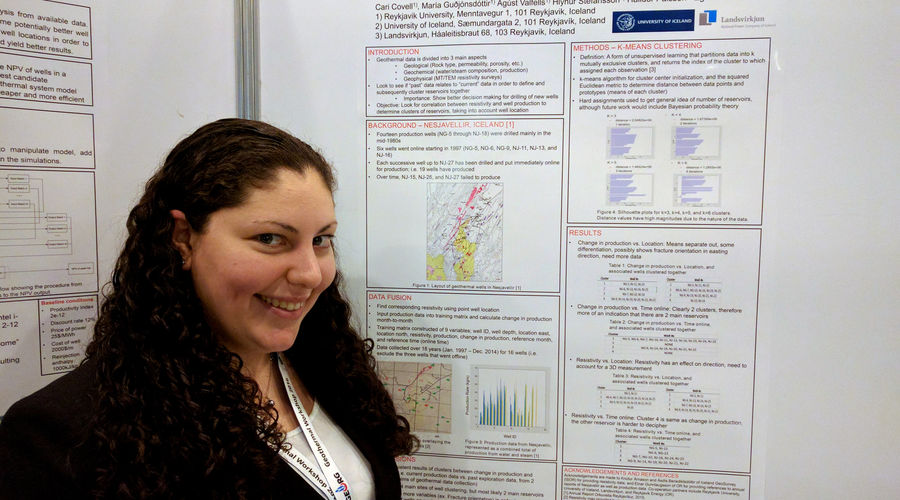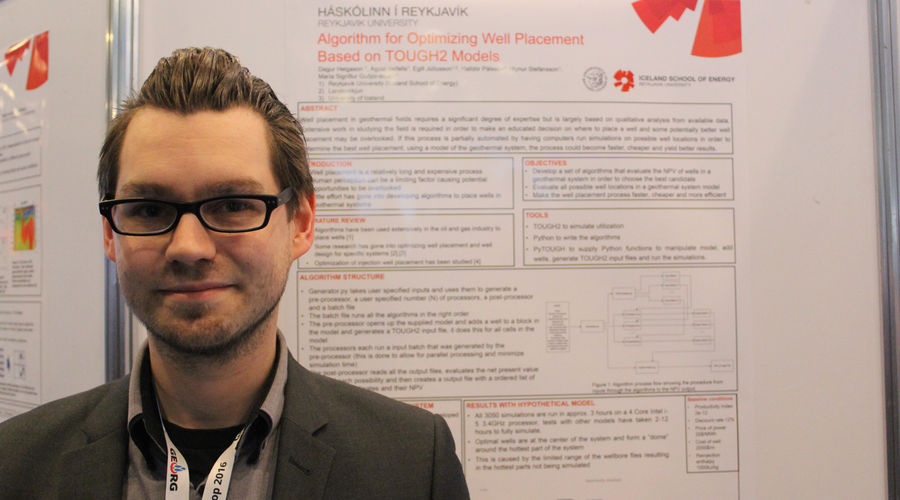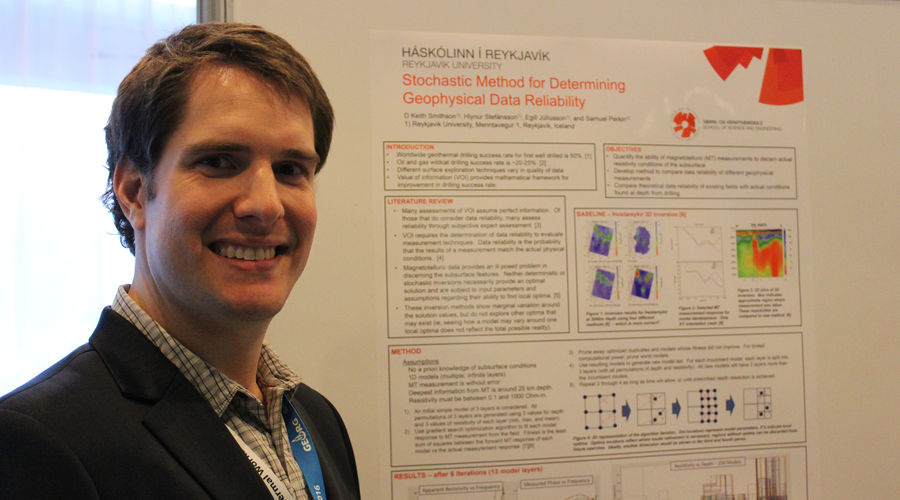ISE students showcase research-projects at GEORG Workshop
Keith Smithson, Cari Covell and Dagur Helgason present the current state of their projects
REYKJAVIK, November 28 - At the first Geothermal Research Group (GEORG) Geothermal Workshop , held in Reykjavík on 24/25 November 2016, three former or current ISE students, and members of the Geothermal Operations Research Group at ISE, were given the chance to present their research projects to the geothermal community, scientific experts, and industry leaders.GEORG is a cluster initiative founded in Iceland in 2009 with the aim to create a platform for industry and academic parties to join forces. 22 partners, including the largest players in education, research organization and industry active in the Icelandic geothermal sector, come together with the intention to strengthen research and development and foster innovation in the geothermal energy field. The Geothermal Workshop was held to highlight both achievements from GEORG's initiatives and give an outlook on upcoming projects and new innovations in the geothermal sector. As part of this outlook, Cari Covell's, Dagur Helgason's and Keith Smithson's projects had been selected to be featured in the poster session in between lectures and discussions.
 Cari Covell, an ISE student who is now pursuing her PhD at
Reykjavik University, presented her PhD research focused on machine learning
and data fusion for geothermal reservoir characterization. By utilizing a machine
learning methodology to the hydrothermal characterization process, she aims to
produce more accurate and reliable models of geothermal reservoirs. The project
aims to combine exploration stage data with production data from existing wells
to determine well connectivity, fracture orientation and system temperature. This
methodology potentially can be used to make predictions for future well
performance in different locations allows for better decision making in the
selection of new drilling locations.
Cari Covell, an ISE student who is now pursuing her PhD at
Reykjavik University, presented her PhD research focused on machine learning
and data fusion for geothermal reservoir characterization. By utilizing a machine
learning methodology to the hydrothermal characterization process, she aims to
produce more accurate and reliable models of geothermal reservoirs. The project
aims to combine exploration stage data with production data from existing wells
to determine well connectivity, fracture orientation and system temperature. This
methodology potentially can be used to make predictions for future well
performance in different locations allows for better decision making in the
selection of new drilling locations.


Alongside the students, several of ISE affiliated academics
and industry experts participated in the GEORG workshop 2016.
>> Read more about other ISE affiliates at the GEORG geothermal workshop 2016
>> Read more about Cari Covell's path after graduating from ISE
